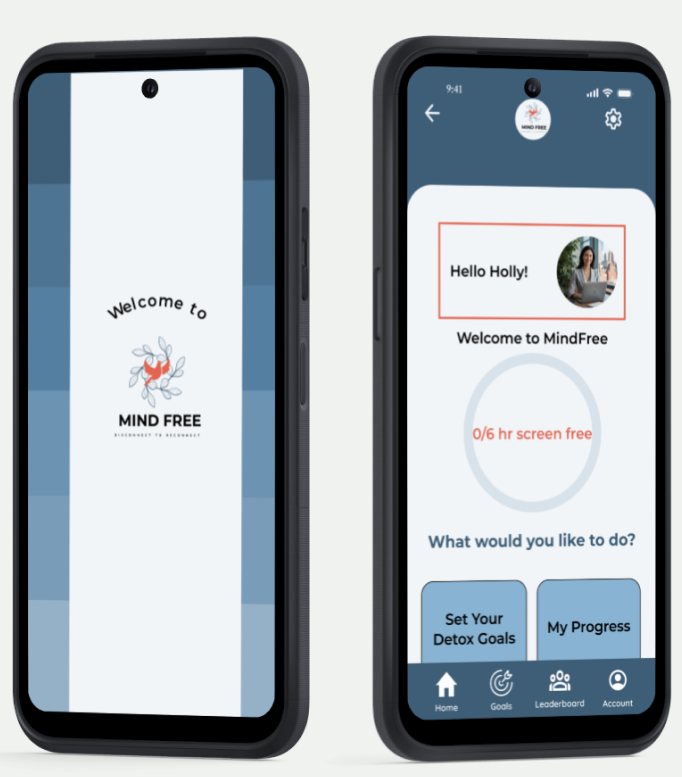

MindFree turns screen detoxing into a fun, interactive game. Rewarding users for staying off their devices and helping them build healthier habits through challenges, progress tracking, and daily goals that make unplugging feel like leveling up.
Roles:
UX Researcher
UI Designer
Team:
Kali, Arya, Priyanka & Bella
Tools:
Figma, Otter AI, Google Slides & Google Survey
Problem:
Despite users being aware of the impacts of excessive screen time. Overwhelmed seekers struggle to disconnect due to boredom, habits, and the addictive nature of endless scrolling. Existing solutions fail to provide engaging, habit-forming alternatives, leaving users stuck in a cycle that compromises their well-being, focus, and personal growth.
Solution:
MindFree helps overwhelmed seekers break free from the cycle of excessive screen time by offering an engaging, habit-building alternative to endless scrolling. Through gamified challenges, AR escapes, and personalized, mindful routines, MindFree makes digital detox rewarding and sustainable, therefore encouraging users to disconnect from distractions and reconnect with purpose, presence, and personal growth.
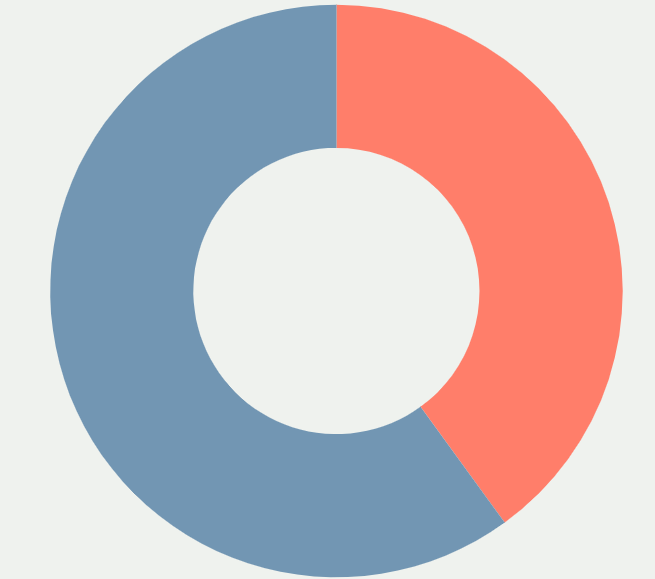
Impact:
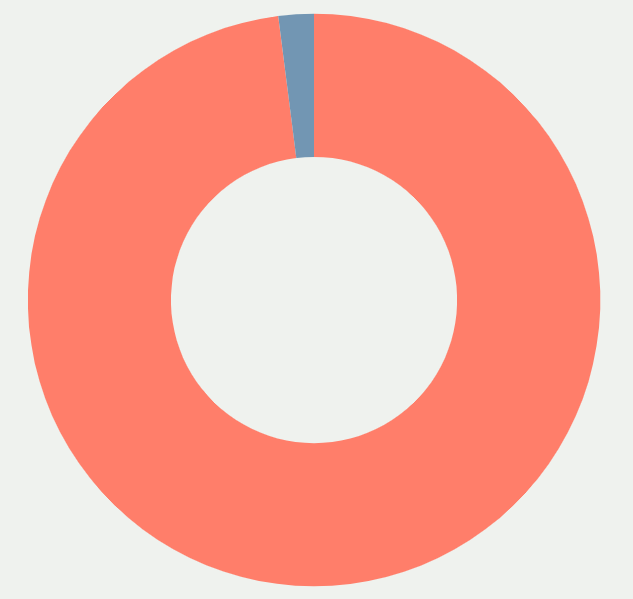
Task Completion Rate
98%
Increase In User Engagement
40%
The users navigated through setting detox goals in under a minute.
MindFree engaged users more than comparable apps, aiding habits formation.
Affinity Diagram:
This affinity diagram was developed using insights gathered from user interviews. Key themes and categories were identified to organize the feedback, allowing us to understand user needs better, uncover patterns, and gain a clearer view of the overall experience.
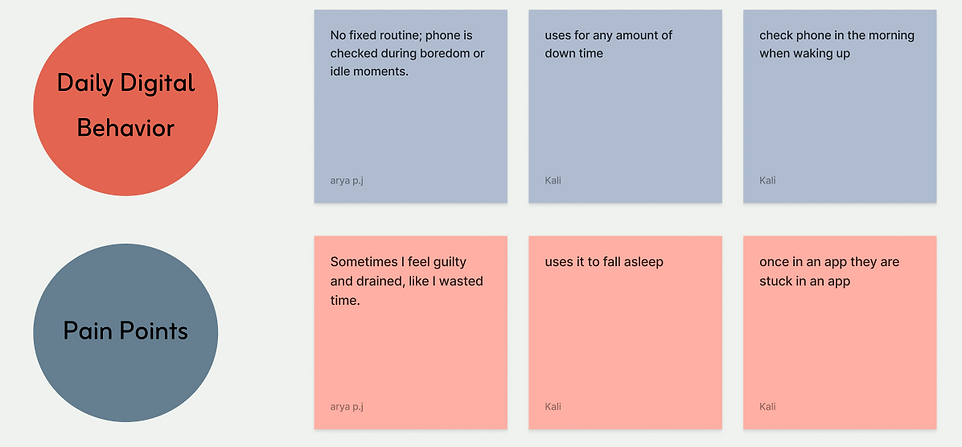
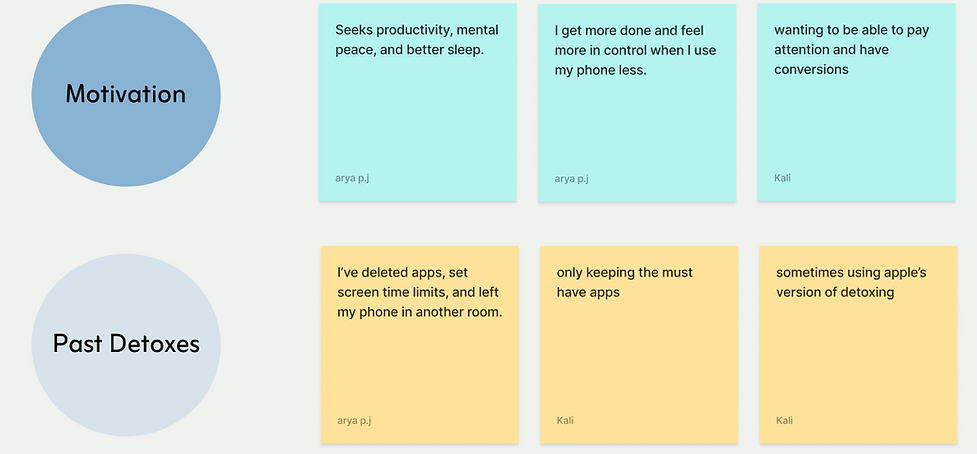

Survey:
A survey was presented to thirteen respondents with eight queastions asking about their screen time usage.
What is your average daily screen usage?
Has screen time ever interfered with your sleep, focus, or mood?
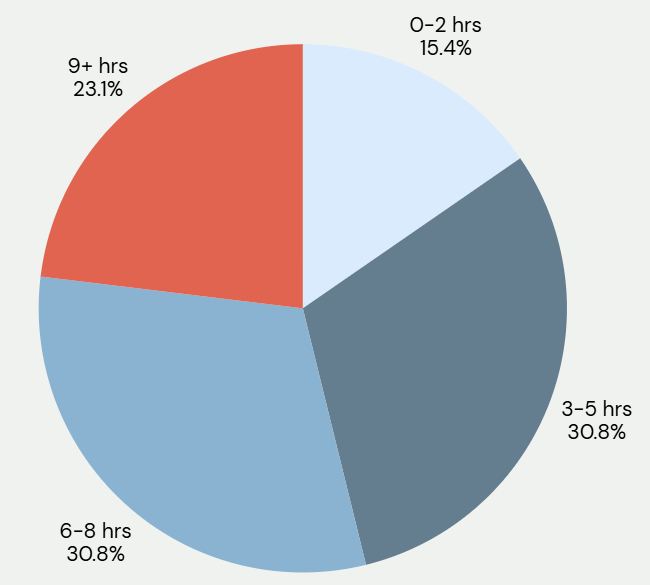
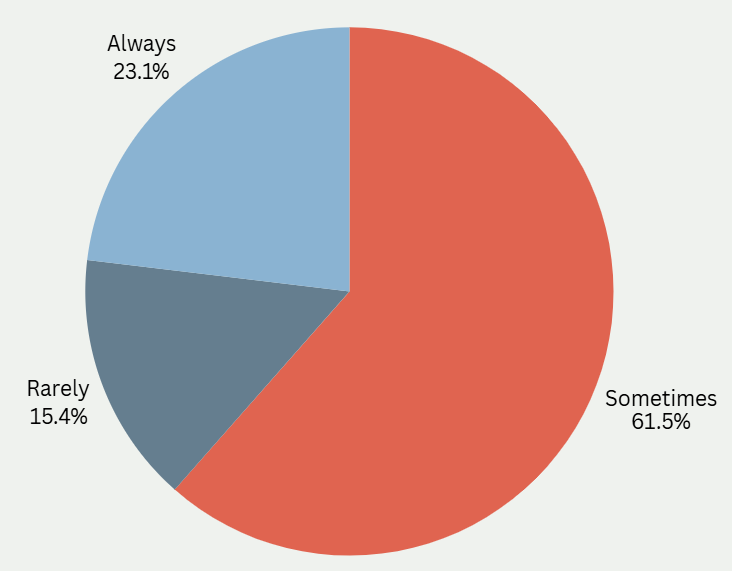
How would you want your progress to be recorded?
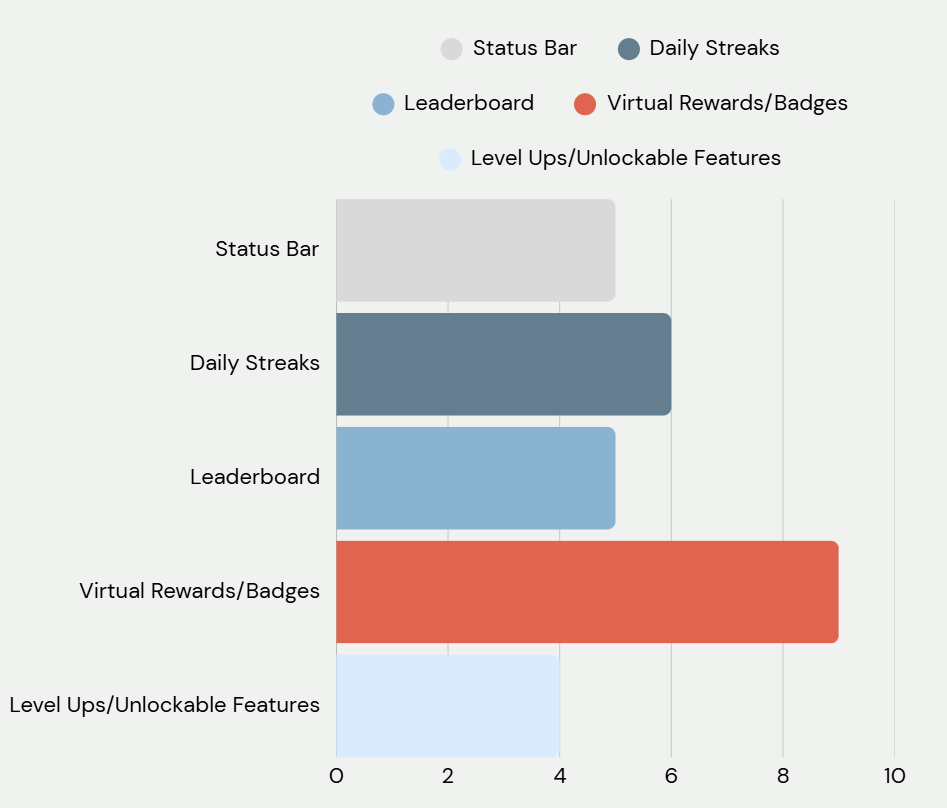


Competitor Analysis:
Doing a competitor analysis helps identify opportunities to differentiate and improve usage, ensuring it meets user expectations and stays competitive.
Strengths
Weakness
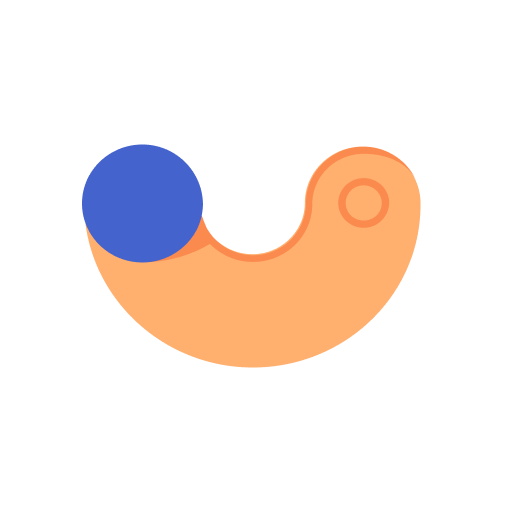
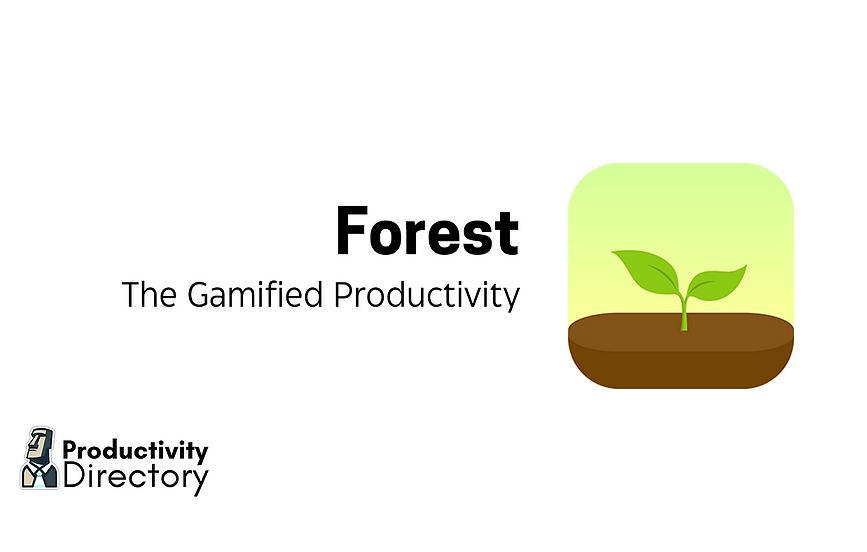
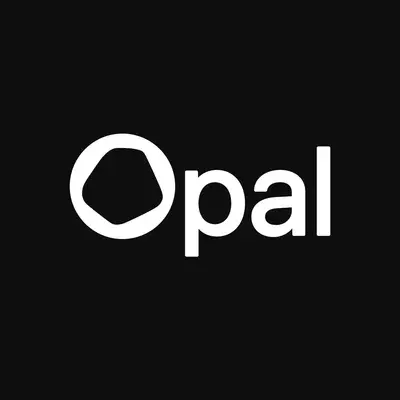
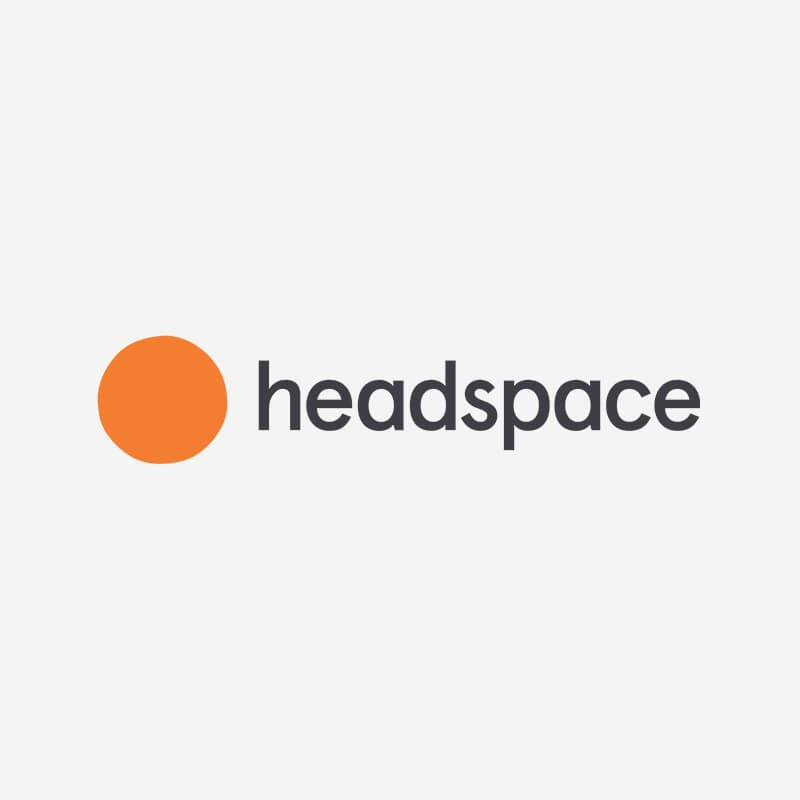
Flipd
Can earn streaks and achievement badges
Advanced features like stats and focus rooms require a paid upgrade
Set limits for apps and track weekly consumption
App penalizes users who give up instead of offering motivation
App redirects users from distractions to mindful focus
Subscription cost is considered high vs free alternatives
Provides guided meditations, sleep aids, focus music, and breathwork
Not a dedicated digital detox app;
limited free access
User Persona:
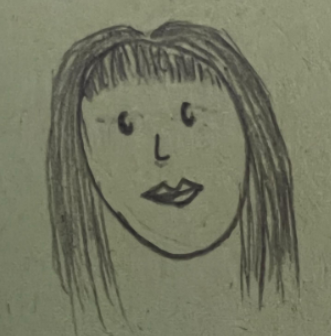
Motivations:
-
Cares about mental health and self care
-
Wants to improve her quality of sleep
-
Feels less anxious the less time she spends on screens
-
Wants to find time to pick up a new hobbies or spend more on her current hobbies
-
A streak and rewards system
Holly Meyers
Pain Points:
Goals:
-
Age: 28
-
Lives in Philadelphia
-
Works in Finance
-
Works long hours, a lot of which require her to be looking at a screen
-
Struggles to stop scrolling at night and throughout the day
-
She needs to be on her phone and in front of screens for her job; she spends a majority of her day on screens
-
Takes longer to get tasks done because she's constantly getting distracted by her phone
-
Reduce screen time
-
Replace scrolling before bed with reading before bed
-
Not get distracted so easily
-
Improve her overall mental fitness
MindFree empowers users like Holly to break the cycle of digital overload by transforming screen-free time into a meaningful, rewarding experience. Through a unique blend of gamification, AR features, and personalized detox goals, we help users reclaim their focus, improve their well-being, and reconnect with what truly matters, all without guilt or friction.

User Journey Map:
-
Struggles to stop scrolling on her phone, not finding the guidance and help she needs
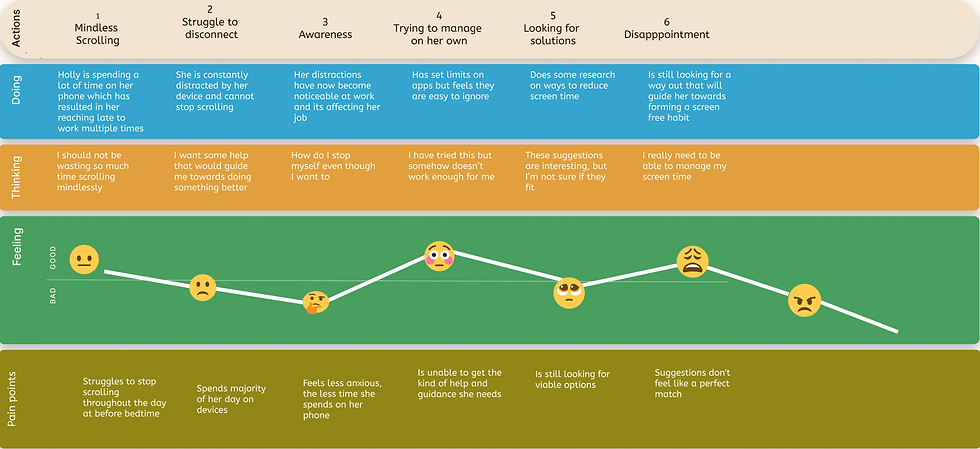
-
Holly is spending a lot of time on her phone, which affects her work
A/B Testing:
A comparison test was done for the Leader Board screen. After showing users screen A and screen B, a combination of the two was created to make the final design.
Screen A
Screen B
End Product
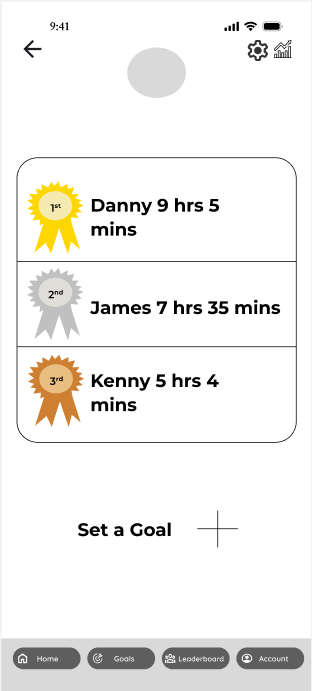
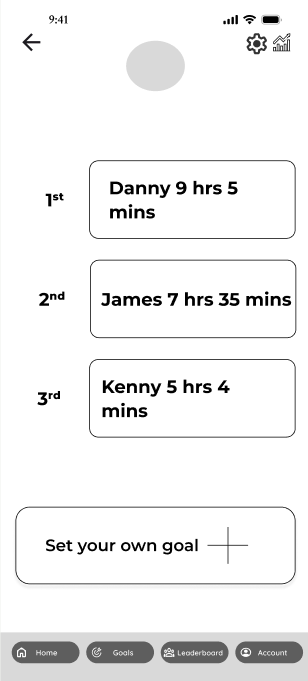
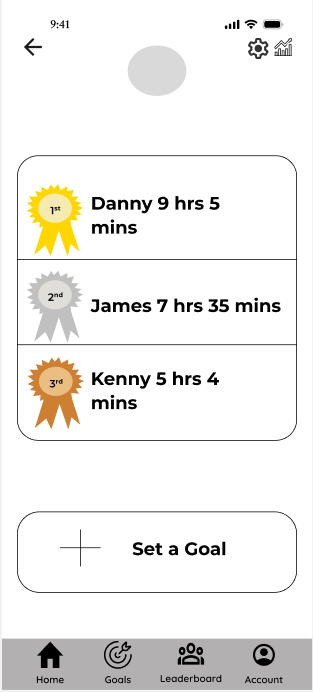
Mid-fi Testing Feedback:
-
Users disliked being forced into goal-setting before seeing the home screen
-
Post-submission notification needed after completing meditation to maintain engagement
-
All permissions/acceptances should happen at the start, as interruptions during detox flow are disruptive
-
The progress screen shows both "Journey" and "Leaderboard" buttons, but both lead to the same screen, which was confusing
-
Users wanted footer icon labels below for enhanced clarity
-
Users wanted a leaderboard plus icon on the left, as it aligns with standard app UI norms
-
Ensure all the footer buttons are functional, as most are currently unclickable
Mood Board:
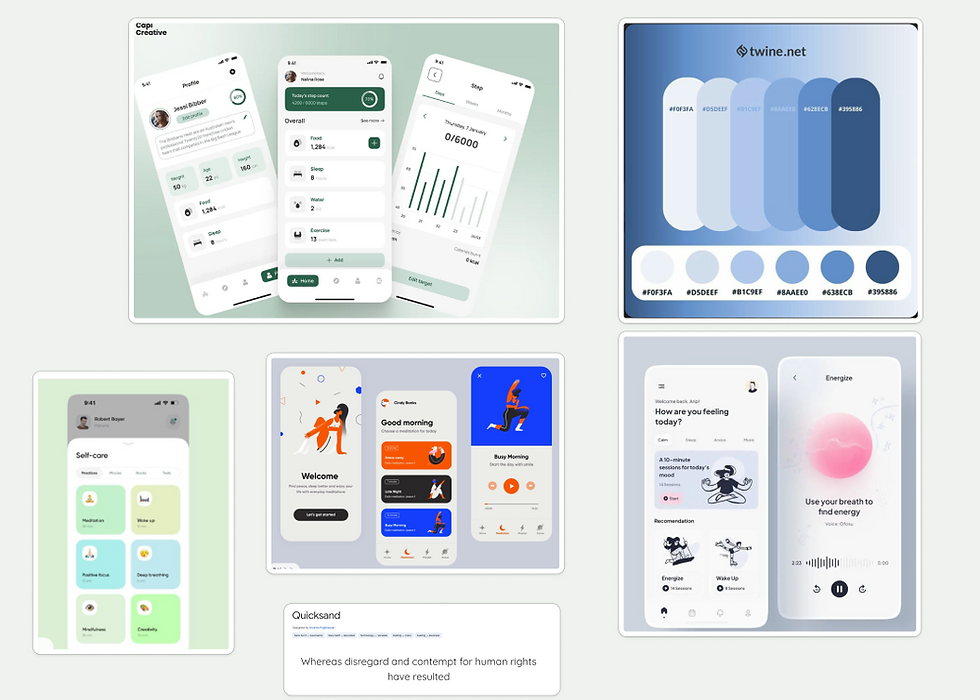
Style Guide:
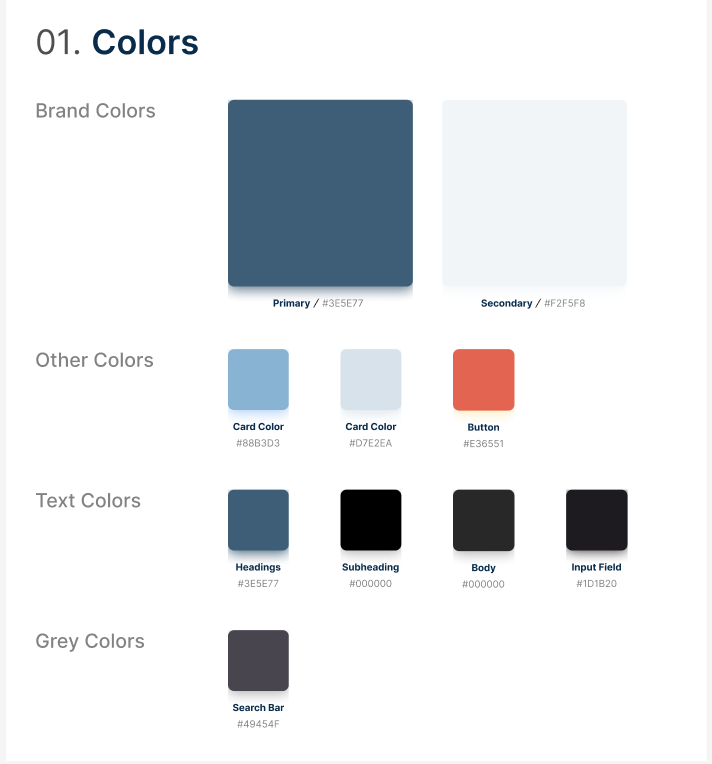
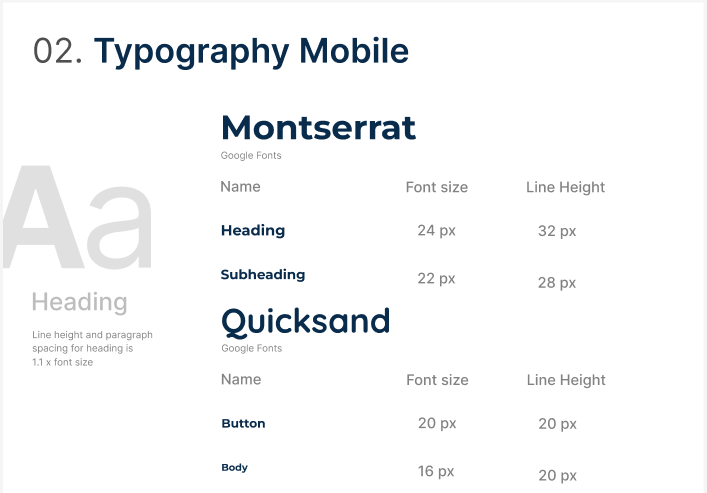
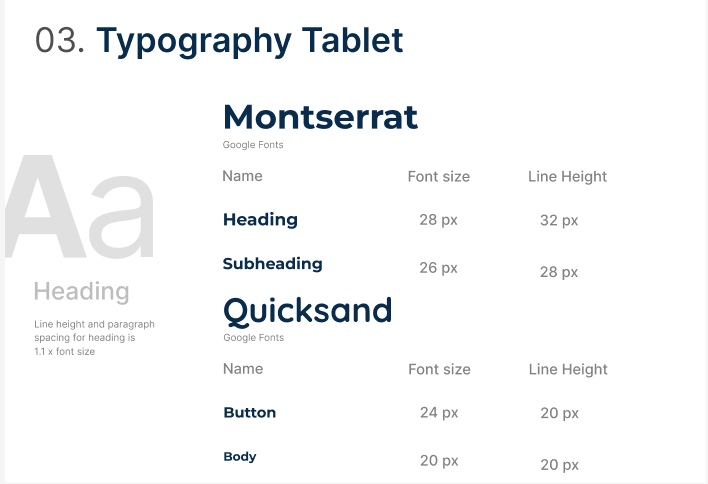
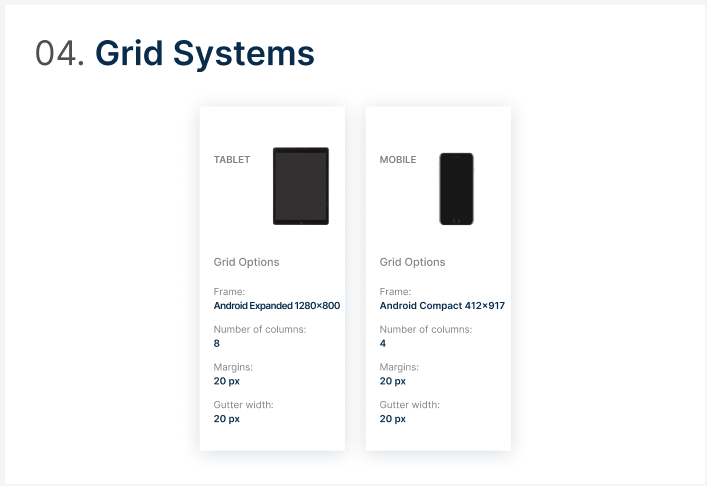
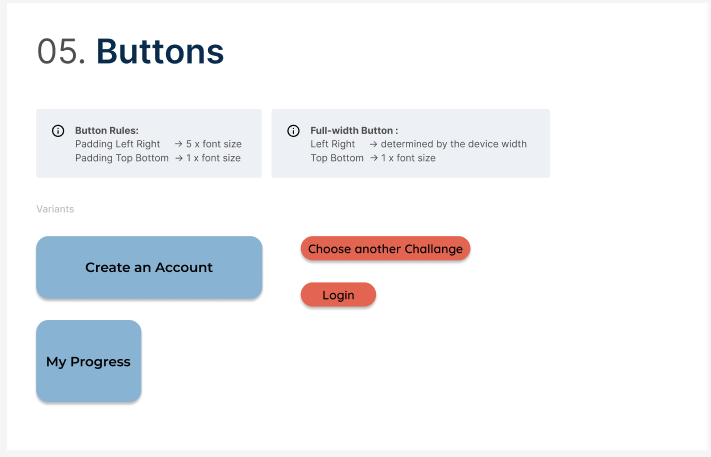
Final Design:
The final redesign embodies a user-focused approach, combining user feedback, research findings, and usability principles to deliver a seamless, engaging, and visually unified experience.
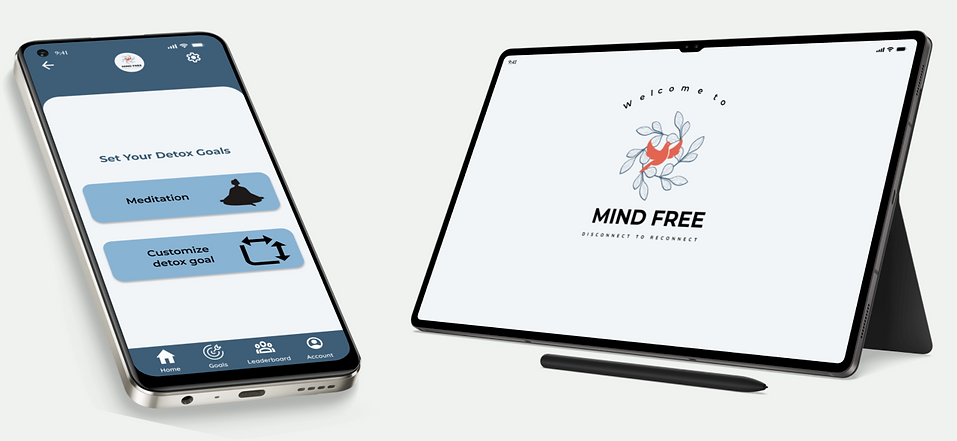
High-fi Feedback:
-
Appreciated functionality, ease of use, and overall visual appeal
-
Users were more motivated and enjoyed the engaging experience
-
Increased interest due to gamification and AR features
Finals Thoughts:
-
Users respond better to motivation over restriction
-
Personalization and positive reinforcement increase long-term engagement
-
AR and immersive elements deepen user experience and retention
-
Screen-free goals must feel achievable, trackable, and meaningful
Next Steps:
-
Adding a dark mode feature
-
Create daily detox goal presets
-
Adding more themed badges
-
Enhancing AR with quests and rewards

Mobile
Tablet
.png)
















